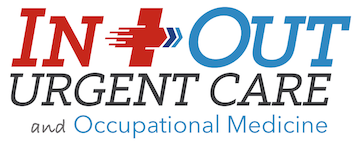Navigating the healthcare system can sometimes be a confusing and overwhelming task, particularly when it comes to choosing between urgent care, primary care, and emergency care services. Each type of facility plays a unique role in addressing specific healthcare concerns and understanding their differences can not only help you make informed decisions but also enable you to receive appropriate care in a timely manner.
In this article, we will discuss the distinctions between urgent care, primary care, and emergency care and lay out guidelines for choosing the right care option for a variety of health issues. We will also highlight the role of In & Out Urgent Care in providing personable, affordable, and convenient care to patients with non-life-threatening conditions in New Orleans and North Shore.
Understanding Primary Care Services
Primary care refers to the routine healthcare services you receive from a family doctor, pediatrician, or internist. These providers establish long-term relationships with their patients, addressing general health concerns, conducting periodic check-ups, managing chronic conditions, and providing preventive care services such as vaccinations and screenings. Primary care physicians are considered your go-to healthcare professionals for most medical needs, and they can refer you to a specialist if necessary.
When to choose Primary Care:
- Routine checkups or wellness visits
- Immunizations and vaccinations
- Long-term care management for chronic conditions
- Basic diagnostic services, such as blood tests
- Prescription refills
- Annual physicals
Making the Most of Urgent Care Services
Urgent care centers, such as In & Out Urgent Care, bridge the gap between primary care and emergency care by offering accessible, quick, and cost-effective treatment for non-life-threatening conditions that require immediate attention. Examples of urgent care-appropriate conditions include minor infections, injuries, and flu-like symptoms. Urgent care facilities typically have extended and weekend hours, allowing you to seek medical attention without an appointment when your primary care provider is unavailable.
When to choose Urgent Care:
- Cuts and abrasions that may need stitches
- Sprains, strains, or minor fractures
- Ear infections, sore throats, or sinus infections
- Mild asthma attacks
- Urinary tract infections
- Non-severe allergic reactions
- Flu and cold symptoms
When to Seek Emergency Care
Emergency care facilities are equipped to handle life-threatening conditions and emergencies, such as severe chest pain, difficulty breathing, or major trauma. They often have dedicated resources and highly skilled medical professionals trained to address critical health concerns that cannot wait. Given the severity and complexity of the cases handled in emergency rooms, the wait times and financial costs associated with emergency care are usually higher compared to urgent or primary care practices.
When to choose Emergency Care:
- Severe difficulty breathing or shortness of breath
- Chest pain lasting more than 30 minutes
- Signs of a stroke, such as sudden severe headache, facial drooping, or weakness on one side of the body
- Major trauma, such as broken bones or severe dislocations
- Severe head injuries or head injuries accompanied by confusion, vomiting, or seizures
- Loss of consciousness
- Suicidal thoughts or a mental health crisis
Which Type of Care Do You Need
Choosing the right type of care for your specific health needs can be challenging, but understanding the differences between primary care, urgent care, and emergency care facilities can help you make an informed decision. In general, if you have a routine health concern or need preventive care, you should seek primary care services. If you have a non-life-threatening condition that requires immediate attention, like a sprain or minor infection, you should consider visiting an urgent care facility. However, if you have a life-threatening condition, such as severe chest pain or difficulty breathing, you should seek emergency care services immediately.
In & Out Urgent Care and Your Healthcare Needs
In & Out Urgent Care recognizes the unique role that urgent care facilities play in addressing patients’ healthcare needs in a prompt and efficient manner. By offering extended hours and accessible locations in New Orleans and North Shore, In & Out Urgent Care helps patients receive the appropriate care without the inconvenience of waiting for an appointment with their primary care physician or the high costs associated with an emergency room visit.
Conclusion:
Understanding the differences between urgent care, primary care, and emergency care facilities is essential to making informed healthcare choices and ensuring that you receive the necessary care as timely and efficiently as possible. While primary care providers manage your long-term health, urgent care centers such as In & Out Urgent Care offer accessible, prompt, and affordable services for non-life-threatening conditions. Finally, emergency care facilities deal with critical, life-threatening situations where immediate medical attention is required. By being aware of these distinctions, you can make better healthcare decisions for yourself and your loved ones, resulting in improved health outcomes and overall well-being.
At In & Out Urgent Care, we offer prompt and affordable medical care for a variety of non-life-threatening conditions, including flu-like symptoms, minor injuries, and infections. Our clinic is staffed with experienced medical professionals who provide expert urgent care in a comfortable and welcoming environment.
We understand that healthcare needs can arise unexpectedly, and that’s why we offer extended hours during the week and on weekends, so you can receive the care you need when you need it. So, if you’re in New Orleans or North Shore and need urgent medical attention, visit In & Out Urgent Care for personable and efficient care!


